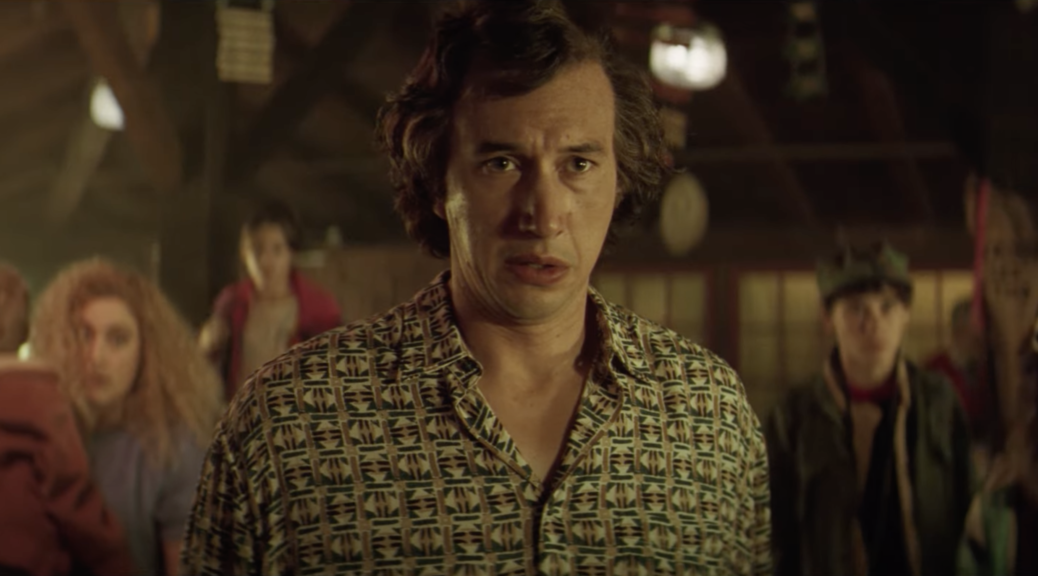The Brutalist
by George Wolf
After a series of memorable supporting roles (including Thirteen, Funny Games, and Melancholia), Brady Corbet took a step toward filmmaking in 2012 as co-writer and star of the creepily effective Antonio Campos thriller Simon Killer. He moved behind the camera for The Childhood of a Leader (2015) and Vox Lux (2018), teaming with his co-writer and wife Mona Fastvold for two captivating features anchored in history.
But as impressive as Corbet’s filmography has been so far, the audacious scope (three and a half hours, with an intermission) and ambitious craftsmanship (Corbet and cinematographer Lol Crawley shoot in 70mm VistaVision – out of date in American since the early 60s) of The Brutalist arrives as an utterly shocking step forward. And even when it teeters on a late, self-indulgent precipice, the film heralds Corbet and Fastvold as filmmakers of impressive vision and skill.
Though their characters are again changed by history, this time they give those characters more of a chance to shape it. We arrive in post-WWII America with László Tóth (an astounding Adrien Brody), a Hungarian who has survived the Nazi concentration camps and come to work with his cousin Attila (Alessandro Nivola) in a Pennsylvania furniture store. Corbet’s gorgeous upside-down framing of the Statue of Liberty foreshadows both Tóth’s future in a new land and the nimble camerawork to come, with the memorable scale from Daniel Blumberg’s majestic score signaling the increasing stakes.
László has lost much to wartime trauma, and Brody makes the pain palpable. But as he waits for word as to when his wife Erzsébet (Felicity Jones, never better) and niece Zsófia (Raffey Cassidy) may join him in America, László holds tight to his pride from working as a celebrated architect in Budapest.
When local tycoon Harrison Lee Van Buren (Guy Pearce, terrific as the film’s Daniel Day-Lewis) learns of László’s talent, he hires him to design a long desired community center. The project will come to consume László’s very existence.
Corbet assembles the saga in two chapters, and after a fairly straightforward setup in Act One, motives and messaging become more abstract. On the surface is an epic tale of post war America’s give and take relationship with its immigrants, of beauty and art surviving the worst of humanity and of the deep complexities within the American capitalist dream. And if it stopped there, The Brutalist would stand as a grand achievement. But László isn’t the only architect thinking very big here, and Corbet builds up Act Two (and the accompanying epilogue) with grand ideas on personal legacy, Jewish history, sexual repression, power and shame, and ultimately, more questions than he’s intending to answer.
Corbet’s direction also becomes more insistent, adding shots that move away from what his characters would naturally notice to stress elements for audience benefit. The gorgeous photography, muscular framing and powerful performances ensure nothing goes to waste, but a road to a grand and profound statement begins to gather some stones.
While the film does feel overlong, it is never boring, as nearly every frame contains something, or someone, intriguing. Zsófia’s arc – that of a girl rendered mute from wartime trauma who grows to reclaim her destiny – could fuel its own feature film, as could Attila’s path to assimilation, and any number of supporting characters adding memorable moments to the landscape.
And The Brutalist is nothing if not memorable. Though the sheer accomplishment may stand a bit taller than the final statement, it cements Corbet as a voice that cannot be ignored.






